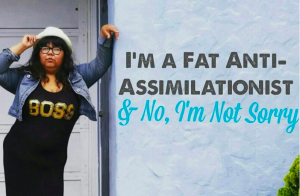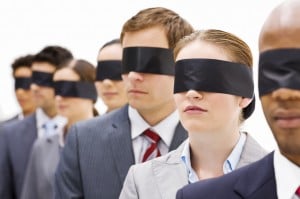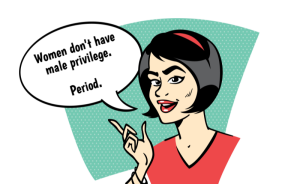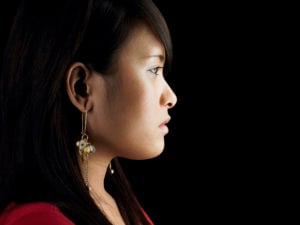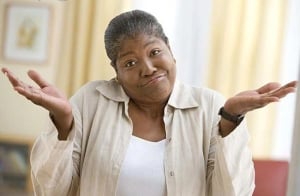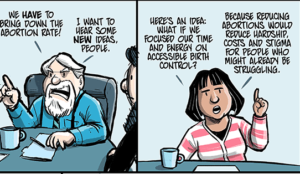Originally published on VirgieTovar.com and republished here with the author’s permission.
For so long, I saw myself as a failure.
Even though there were so, so many signs that I was already rebelling against diet culture, I denied them. Each time I ate cake or decided to watch Dynasty instead of exercise, my inner badass was saying “Girl, this sucks.”
The badass inside my head won a lot, but I couldn’t see those choices not to comply as choices, only as failures.
After breaking up with diet culture, I began to see that my body is this cute thing that comes with me to all the places I love and helps me do weird and amazing things, but my body is not the most important thing in this story.
My choice is.
I made a decision not so long ago that I was going to stop dieting and stop hating myself and stop weight cycling and to choose me, rather than some culture of adherence that seeks to reduce me to a reproductive hole who straightens my hair so I can get a job I hate, come home and blow a husband I loathe, and make dinner for children I didn’t want to have.
In choosing me, I decided that I would eat what I wanted (not never-ending parades of dressing-less salad), and I was going to move for fun (not for weight loss), and I was going to live right now (rather than wait until later).
And when I made that very feminist choice, I said to myself, “Whatever my body looks like while I’m living the motherfucking dream, so be it.”
So when I see my fat body now, I remind myself that I know how to starve myself, I know how to exercise for two hours a day, I know how to obsessively count each calorie and each gram of fat. I know that life. I’ve lived that life.
And I don’t choose that life anymore.
My culture is very committed to seeing my fat body as a failure. According to this culture, my body is an artifact of my inability to perform at a standard that has been set for me.
My fat body lives in a metaphorical negative space or vacuum – the automatic space that has been left behind, the leftover space inhabited by all those who couldn’t “make the cut.” Or so the culture tells me. The culture is very invested in constructing this island of misfits as a space that no one would ever choose. It is only a place to which people are relegated.
My body is not seen as part of a choice I’ve made or something that is constituted by neither failure nor success. There are even those whose politics align largely with my own who are committed to pleading a case that my body is a failure that is “not my fault,” and in so doing, seek to assimilate bodies like mine into a greater Western progressive agenda.
I would probably agree that my fatness has something to do with my family being fat. I would probably agree that even taking the recommended measures for diet and exercise, I would likely still be considered fat by medical and even social standards (at least in San Francisco, where I live).
But I’m not interested in exonerating myself. And perhaps more importantly, there is nothing that needs exonerating.
I’m not interested in the culture “understanding my circumstance” as having come by no fault of my own. I am not interested in my body being constructed as one in a batch of failed prototypes. I am not interested in being seen as a success in a culture where success means complicity in a war against myself (not to mention a war against poor people and people of color and women).
Even though I have made this choice, the culture is very committed to seeing and constructing me as a failure. Why? Because who would choose not to opt into the privileges I could be afforded for my obedience? Who would choose not to go along with the notion of health and progress set out for me by the state? Who would choose not to go along at any cost?
Well, honestly, more people than you think. And hell, you might already be doing it right now and not even know it!
Jack Halberstam in The Queer Art of Failure speaks of this very phenomenon. All of those who are outside of what is considered normative “must” be seen and constructed as failures. Our choice to be outside of the violent – and frankly boring – center of privilege must be erased.
It cannot be seen culturally as a choice because this would too quickly unveil the critique that making such a non-compliant choice indicates. When we choose not to assimilate, this is very powerful because we are in essence saying, “Your party sucks.” And, girl, patriarchy really doesn’t like to hear that.
We are taught to see ourselves – all those outside of the boundaries of white/assimilated, wealthy slenderness – to be (metaphorically) standing with our noses pressed to the glass of this “glamorous” world to which we have no access.
We believe that is who we are. That our identity and very selfhood exists only in relationship to these people and the aesthetics of their lives.
I believe this to be far from the truth. At least, it’s far from my truth.
It took me a very long time to leave diet culture. It also took me a very long time to realize that I am a beach-dwelling bohemian writer/thinker/artist type.
I was convinced that this was just a phase. I couldn’t understand why I kept coming back to my artsy, intellectual, fashion adventurous, bitchy, irreverent friends who cursed and talked about shit and penises at dinner parties that would evolve into dance parties after shots of sparkling pinot noir from Grocery Outlet.
I couldn’t understand why I preferred only mini-vacations into the world of the Marin housewife, sipping chardonnay, putting a napkin on my lap, giggling quietly at sexist jokes and exposing only “tasteful amounts of cleavage.” I always wanted to go back to the drinking dancing heathens, and I felt shame and confusion.
Doesn’t every brown girl who was raised by American dream-loving immigrants, given the opportunity, want to disappear into the manicured lawns of white suburbia?
I couldn’t even interpret the signs that were all pointing in the direction of my desire. I had bought the line that bohemians are only bohemians because they can’t be anything else.
It took me an embarrassingly long time to realize that I didn’t want to “graduate” to Marin. I wanted to be somewhere where I felt nourished and seen. White suburbia wasn’t that place for me.
The admission of failure – of the non-consensual nature of the aberrance – is a requisite part of the process that then allows the culture to forgive you and in so doing aggrandize and confirm itself as a benevolent, progress-oriented patriarch.
But I, like, don’t need your forgiveness, patriarchy. And I don’t want it.
I’m stoked to have failed at being the culture’s patronizing notion of a successful woman. I take a stand against oppression. I am a woman who believes in the feminist right to choose. I am an anti-racist brown person and a fat liberationist.
And, no, I’m not sorry.
This post would not be possible without the incredible work of writers and intellectuals like Jackie Wang, Jack Halberstam, Juana Maria Rodriguez, and countless others living out their anti-assimilation every day.
[do_widget id=’text-101′]
Virgie Tovar, MA is one of the nation’s leading experts and lecturers on fat discrimination and body image. She is the editor of Hot & Heavy: Fierce Fat Girls on Life, Love and Fashion (Seal Press, 2012). She writes about the intersections of size, identity, sexuality and politics. See more updates on Facebook and follow her on Twitter @virgietovar.
Search our 3000+ articles!
Read our articles about:
Our online racial justice training
Used by hundreds of universities, non-profits, and businesses.
Click to learn more


